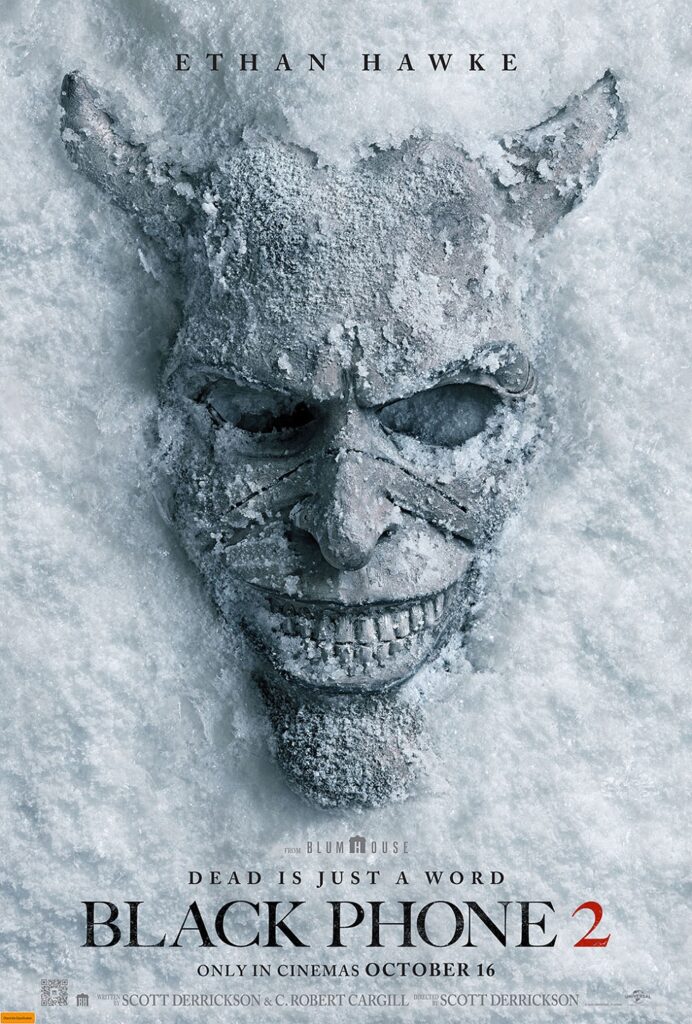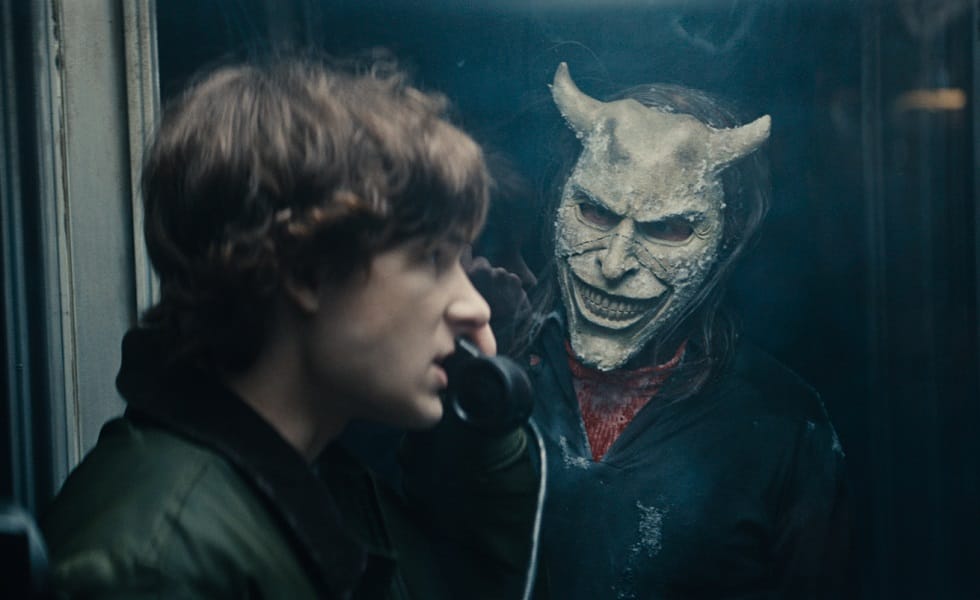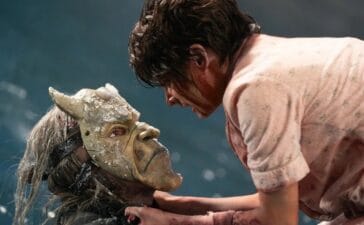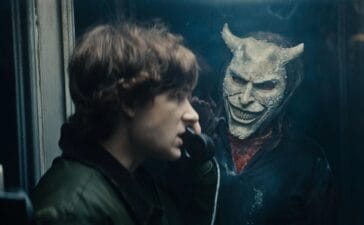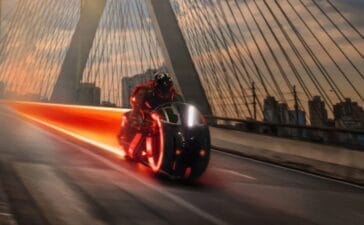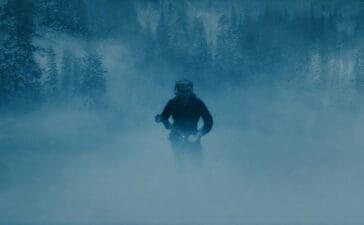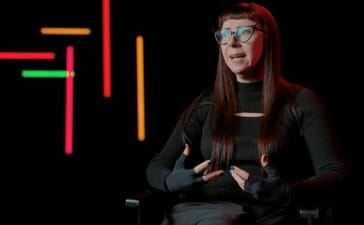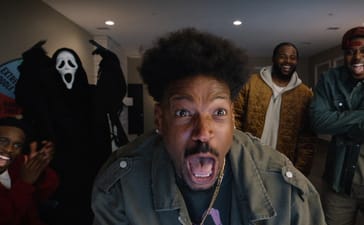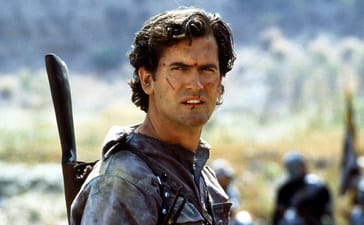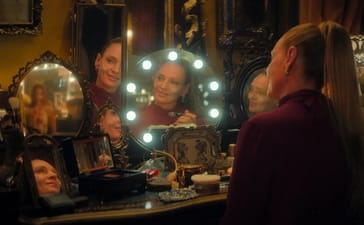The Sinister and Doctor Strange director gives up the goods on his upcoming sequel, Black Phone 2.
Having had a smash hit with 2021’s The Black Phone, director Scott Derrickson was not particularly keen on making a sequel. After all, it was based on a self-contained short story by horror author Joe Hill, and besides, child protagonist Finney Blake (Mason Thames) had put paid to The Grabber (Ethan Hawke), the film’s masked serial killer villain, in the climax of the original. The story seemed over.
But then Hill had an idea, Derrickson had a think, and not terribly long after, the director found himself reuniting with Thames, Hawke, Madeleine McGraw as Finney’s psychic sister, Gwen, and regular screenwriting partner C. Robert Cargill for another tale of telephonic terror.
Now, with the first trailer on our screens:
…we grabbed 10 minutes with Derrickson to grab a few spoiler-free details on Black Phone 2. Kinda feel doing it by Zoom was not quite in the spirit of the franchise, though.
Travis
When did you realize there was space to expand The Black Phone? It’s based on a short story and the the movie is pretty self-contained, but you found a path to to take it further. So how did that come together?
Scott
Well, it wasn’t a given that I would do a sequel to the first movie. I didn’t feel obliged to do it. The studio certainly was asking for one as soon as the movie was a big hit, and I sort of hemmed and hawed a bit. But it wasn’t long before Joe Hill sent me an email and said, “Hey, I have an idea for a sequel.” He wrote out this idea, and I didn’t like all of it, but there was an idea that I thought was great, that I had never thought of. That got me thinking about it. I thought, “Okay, that’s interesting.”
And as I noodled on his idea, it occurred to me that if I went and made another movie first and waited a bit to make a sequel, then I could set this movie in high school and have these same great kids during a different stage of their life and make a a high school, coming-of-age horror film instead of a middle school, coming-of-age horror film. And that became very interesting to me. So I went ahead and at that point committed to doing it, and went off and made another movie [The Gorge, with Anya Taylor-Joy and Miles Teller on Apple TV+] and then came back from that movie and wrote this high school-coming-of-age horror movie. And that’s the sequel.
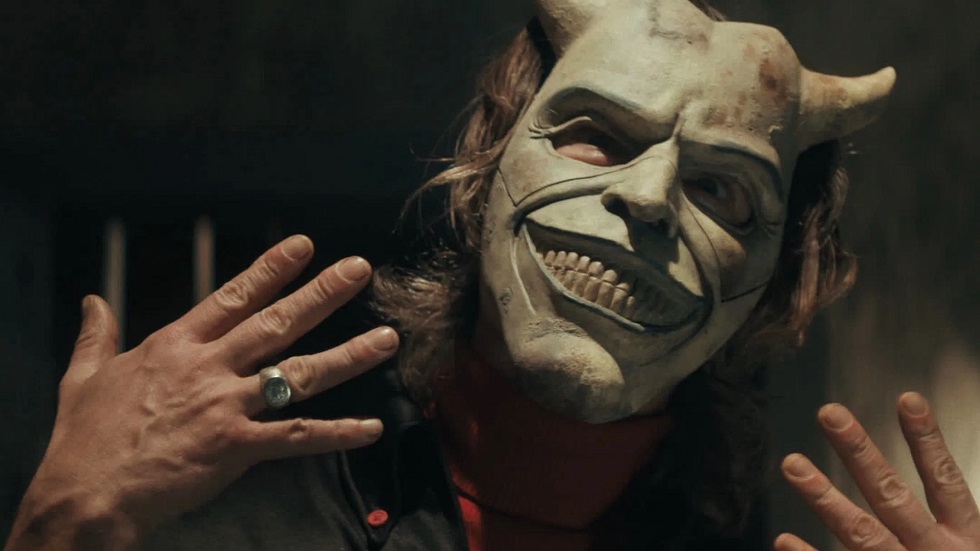
Travis
One thing I really reacted to in the first film were the class issues. I know when we spoke last we talked about how we both grew up in pretty tough working class towns, and you can really feel that in The Black Phone. I really appreciated that. Is that something you’re going to explore further in this one?
Scott
No, not really. This one has to do more with exploring a different part of Colorado. It’s set in a winter camp, and when I was in high school I was going to these Christian camps in both the summer and the wintertime, and it was always the winter camps that were that were so striking for me, and are still the most memorable. The power of Rocky Mountain winters is really something, you know, and and the picturesque nature of that environment.
Of course, The Shining is set in the Rockies. But that snowbound environment has not been drawn on as heavily as you would think for for other movies. And I like the idea of “camp horror” being a tradition in in the slasher genre. But to to do something in a winter camp as opposed to a summer camp? That was all very interesting to me. And that was that that sort of precludes doing too much exploration of class dynamics, because you’re not down in the city.
Travis
Where do we find our kids in their lives when we revisit them for this one? What’s been happening to them in the interim?
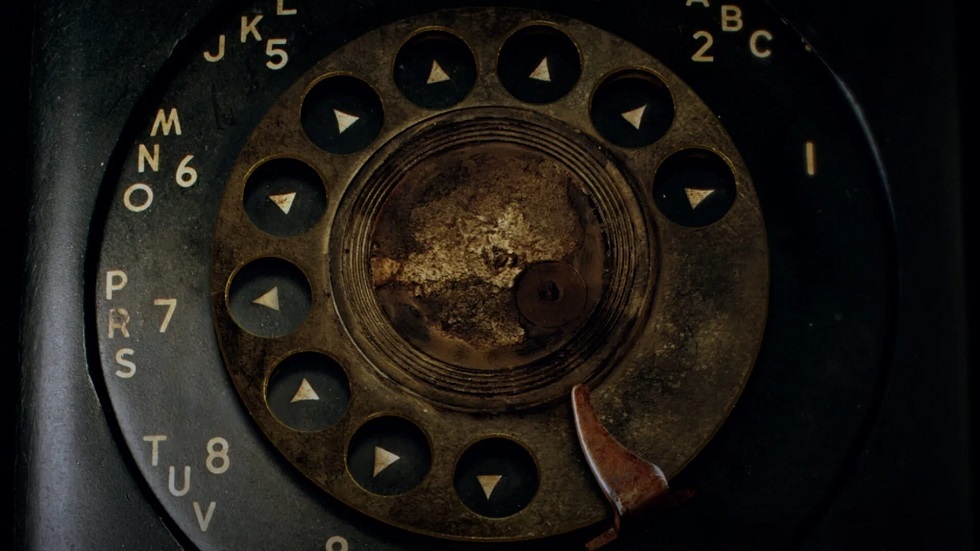
Scott
Well, I’m not going to give any spoilers away, but the main thing is that they’re in high school, you know, and high school is such a different period of life. There’s a few major, short transformational periods that you go through in your life, but there probably isn’t a bigger one than the movement from middle school to high school. That is a massive change and a real transformational period. And that’s part of what I was excited about: to deal with these same characters at a very different juncture in their life.
Travis
Was scheduling a challenge? You’ve got the gang back together. You’ve even got Ethan Hawke back. What were some of the logistic challenges behind just getting the project together?
Scott
We shot two hours north of Toronto, Canada. Most of the snow is real – the vast majority of the snow. So we were shooting during the nights in zero degrees, sometimes. And I think that when you shoot in a real, actual, cold environment with real snow, it just feels different. It certainly looks different. It looks so much more cinematic.
And everybody was on board to come to come back. Getting Ethan was as easy as handing him the script. He told me he was very nervous to read it, and when he read it he was very excited about doing it, and thought it was great, and we scheduled things right away.
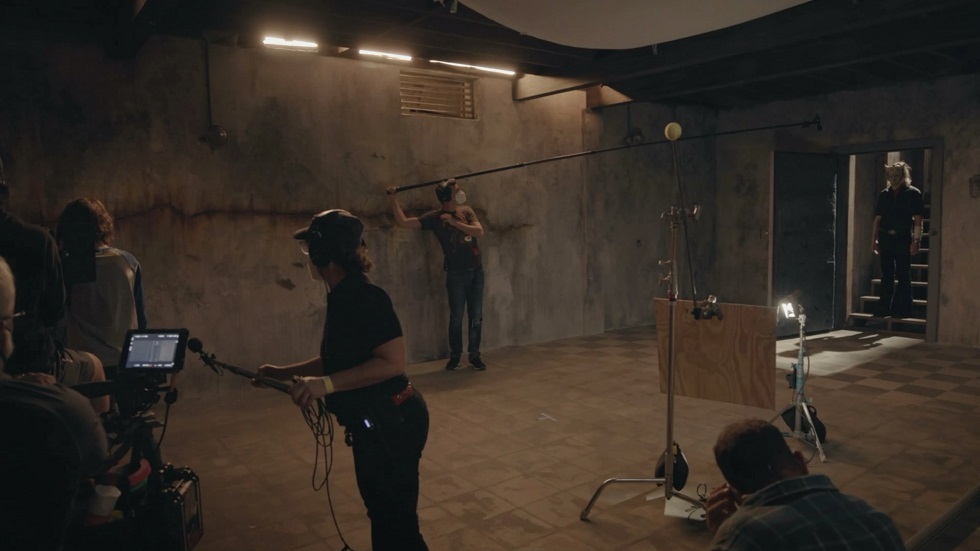
Travis
In terms of narrative, when you’re doing a sequel to something like The Black Phone, what challenges are presented to you? What roads didn’t you want to go down? Are there pitfalls the standard sequel progression that you specifically wanted to avoid?
Scott
For me. It’s pretty simple. The sequels that usually don’t work are sequels where you try to make a similar movie, but more of it, you know? You try to tell the same kind of story, but bigger and more, and that usually is very disappointing in my experience.
There have been a lot of sequels that have superseded the originals, and typically those are movies that take a very different tact altogether, and really tell a very different kind of story. That was a starting point for me as well. I just didn’t wanna try to repeat much of anything from the first movie. I was only interested in being able to to surprise the audience with what kind of movie they were in for.
Travis
It seems we don’t go a year without someone doing an article on like we’re in the middle of a horror renaissance, a horror boom, something like that. But this past 12 months, it really feels like we’re getting a lot of darker genre stuff. Do you think we are?
Scott
No, I think we’re definitely in a real wave of horror. And I think it’s two things. I think it’s both the filmmakers and the audience. I think horror has become a lot more respectable. Critics are more receptive to horror as a legitimate genre than maybe they used to be, and that’s the result of great filmmakers coming along and choosing horror as a genre that they want to work in.
It used to be that the great horror films all came from great directors who did a one-off. Kubrick did The Shining, and Dick Donner did The Omen and Polanski, even though he dealt with thrillers, he made a straight horror film with Rosemary’s Baby. These were classic horror films that were really highly regarded. It wasn’t until recently that some of the best young filmmakers, people like Jordan Peele, were choosing horror as their genre of choice, and I think that’s part of it.
But the other thing is, as streaming has taken over a big part of the marketplace, horror along with event movies remain the films that people want to see in a theater. People prefer to see them surrounded by an audience on a big screen, and I think that’s also part of the reason that it continues to flourish and supersede other genres.
Black Phone 2 hits cinemas on October 16, 2025.
